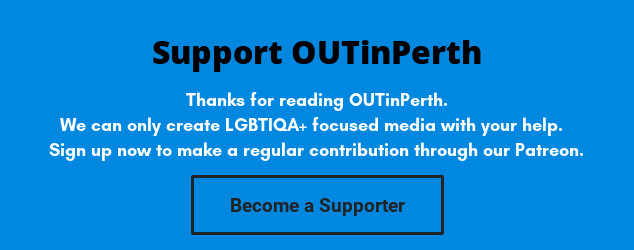
A new report released today outlines the harm caused to lesbian, gay, bisexual and transgender people by the practice of conversion therapy, and its pervasiveness in Australia’s faith communities.
Preventing Harm, Promoting Justice: Responding to LGBT conversion therapy in Australia examines the lived experience of 15 LGBT Australians who have struggled with their sexuality or gender and their religious community.
The report conducted by La Trobe University, the Human Rights Law Centre and Gay & Lesbian Health Victoria also explores the history of conversion in Australia, and recommends comprehensive legal reform.
One participant of the study shared his experience, explaining that in his twenties he had sought to “build a life that would honour my deep faith and make a difference in the world.”
“My spiritual leaders told me that I was ‘sexually broken’ and ‘in need of healing’,” the participant said.
“My quest to change my sexual orientation saw me praying, being prayed over, and introspecting, self-censoring and event participating in exorcisms. I tried for many years, with great passion and desire for change – and nothing worked.”
The participant added that he found the practice to not only be ineffective, but unsafe.
“It did a huge amount of psychological damage to me. And I know that I hurt other people deeply along the way as well because I was so out-of-sync with who I really was. Now, I happily know that I’m gay, I’m not broken, and I’m not in need of healing.”
Senior history lecturer at La Trobe University Dr Tim Jones says the research has shown that LGBT conversion therapy remains a real problem in Australian religious communities.
“We hope that these communities will receive the report, reflect on the damage it exposes and work towards ending those harms for their LGBT members.”
The report urges governments, the health sector and religious communities themselves to better respond to those struggling to reconcile their sexuality or gender with their religious beliefs.
“The report reveals immense trauma and grief participants felt at the prospect of having to choose between their faith or their gender and sexuality, both intimate and important parts of themselves,” Dr Jones continued.
“The psychological and spiritual trauma experienced by our participants, at their loss of faith, or their struggle to be accepted by their communities, was devastating.”
Human Rights Law Centre’s director of legal advocacy Anna Brown says the conversion movement’s activities are proven to be both ineffective and harmful.
“Telling someone they are broken or sick because of who they are is profoundly psychologically damaging. We need to look to a world where lesbian, gay, bisexual and trans people of faith can be embraced as whole and human by the faith communities they love,” Brown said.
“We need stronger laws and support for survivors but also education about the harm caused by the cultural ideas and messaging prevalent within faith communities. We particularly urge governments across the country to respond to the acute vulnerability of children and young people in religious communities.”
Among the report’s recommendations are adding to existing protections by introducing specific legislation to prohibit conversion practice against adults when executed by health or other professionals, and banning conversion practices against children.
“While adults are free to participate in informal religious conversion activities such as prayer groups and ‘spiritual deliverance’, as harmful as they are, as soon as these practices involve children, or are provided by counselors or other professionals, there is a role for the law to play in protecting people from psychological harm,” Brown continued.
The report also calls for legislative changes to be supported by other measures, with a focus on evidence based interventions in faith communities.
“The law is only one part of the solution, because a ban will not impact on the informal practices among adults that we know are prevalent in Australia’s conversion movement, and may drive them further underground in certain faith communities,” Brown said.
“We recommend a multi-faceted approach implemented in partnership with religious institutions and communities to help, not harm, LGBT people of faith.”
The full report is available online here.






